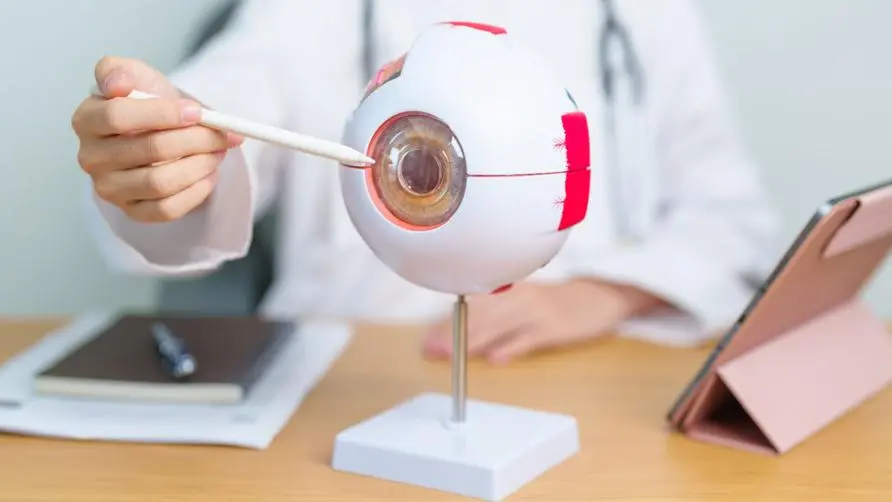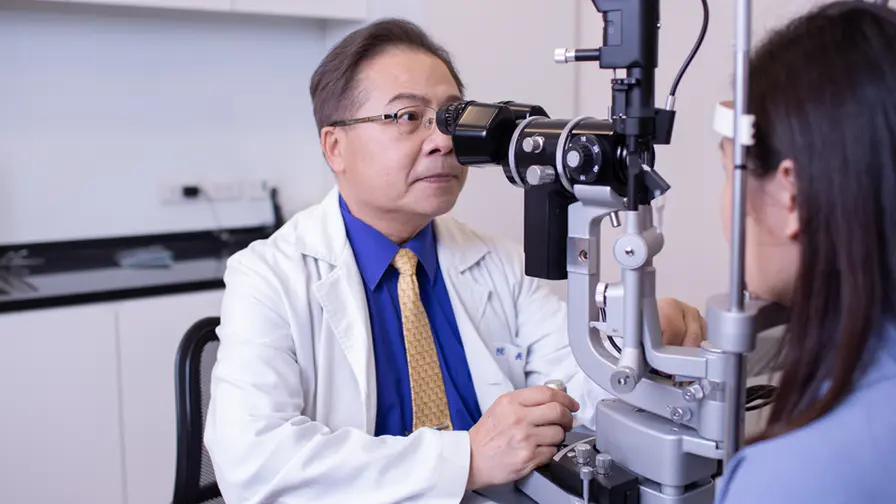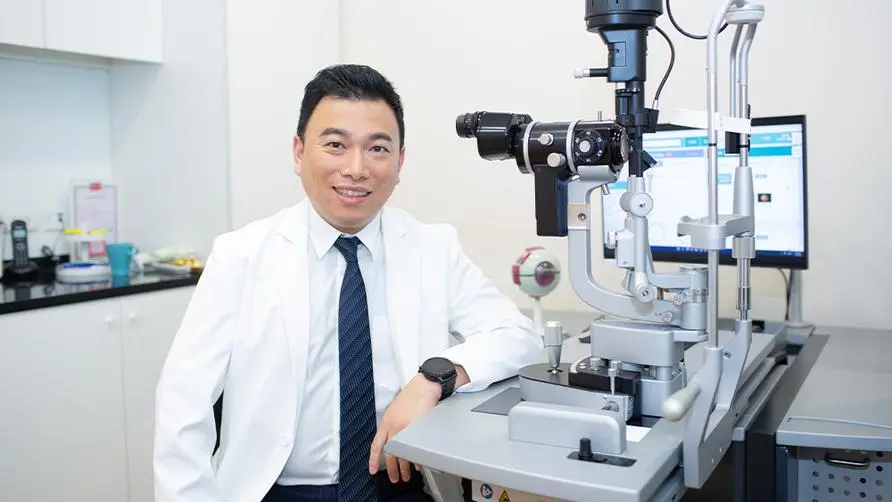There is medicine but no cure? Doctors reveal two major myths about Taiwanese macular degeneration: ignoring the seriousness and feeling good about themselves

Taiwan’s annual ophthalmology visits exceed 6 million, and Taiwanese people go blind. Two potential threats
With the popularization of 3C devices and remote working, Taiwanese people are more likely to face the risk of macular degeneration and other eye diseases due to excessive use of their eyes. According to statistics, among the 21.8 million medical visits in Taiwan in 2021, about 6.78 million sought medical treatment for eye problems, and the cost of extending related health insurance reached 18.1 billion yuan. Coinciding with the “World Vision Day” in the second week of October, the Association for the Love of Blindness of Taiwan calls on Taiwanese to pay attention to macular degeneration. You can use the “Amsler Grid” to quickly self-check whether there are signs of macular degeneration in 30 seconds.
He Yitao, chairman of the Blind Love Association of Taiwan, said that choroidal neovascularization (myopic CNV) and diabetic macular edema (DME) caused by high myopia in Taiwanese people are currently the most important risk factors for macular degeneration in Taiwanese people. , it is estimated that there are more than 400,000 patients with macular degeneration in Taiwan, and the rate of increase is still rising, indicating that the prevention and treatment of macular degeneration urgently needs to be promoted and publicized. .
Wu Jianliang, secretary-general of the Association for the Love of Blindness of Taiwan, said that in the past, the main cause of blindness in the world was cataracts. However, with the continuous advancement of medical technologies such as sight-restoring surgeries, and the improvement of health environment and social conditions, the main causes of blindness among Taiwanese people have gradually changed. Associated with macular degeneration. Although the macula only accounts for about 2% of the retina, it affects nearly 50% of visual functions. If the elderly become blind due to macular degeneration, they are more likely to aggravate the risk of dementia and disability, leading to increased mortality.
Be careful if there are black spots and distortions in the center of your vision! Four major warning signs of macular degeneration
Dr. Huang Yixiu, director of the Department of Ophthalmology at Linkou Chang Gung Memorial Hospital, pointed out that the five main causes of visual impairment and blindness are: age-related macular degeneration, diabetic retinopathy, refractive errors, glaucoma, and cataracts. Macular and retinopathy account for two-fifths of cases and are still the main cause of blindness in Taiwan. Self-detection of macular degeneration can be done through the “Amsler Grid” self-examination. Once there is a black spot, distortion, blur, or dim color in the center of your vision, you should be alert to the warning signs of macular degeneration.
“Up to a quarter of blind elderly people are caused by macular degeneration. There is no good treatment for early-stage macular degeneration. However, the “intraocular injection” for macular degeneration has been developed for nearly 20 years. There are obviously drugs available. Why do macular degeneration Are local lesions still an important factor threatening Taiwanese people’s vision? Research results show that failure to comply with medical advice is the main reason!”
Dr. Huang Yixiu said that more than half of patients with macular degeneration stop treatment after two years of treatment. According to a study on compliance with medical advice for macular degeneration, it was found that Taiwanese people have two major myths about the treatment of macular degeneration. The first is that “macular degeneration has little impact on health”, and the second is that “after treatment, Your eyesight will improve quickly.” Data show that 56% of patients do not think macular degeneration is a serious disease, and 71% are still confident about their condition even if they have not returned for treatment for 4 months. In addition, 57% of patients with “low medical advice” are not sure whether their treatment is effective, indicating that patients tend to subjectively judge that treatment is ineffective and give up treatment.
Regular treatment of macular degeneration during the first year is expected to reduce the frequency of follow-up visits depending on response
In addition, the cost of medical treatment is also an important factor affecting the behavior of patients with macular degeneration. Each time macular patients return for treatment, including transportation and waiting, they spend an average of about 6.5 hours. How to reduce the number of return visits for treatment is also a major obstacle to treatment. focus.
Dr. Huang Yixiu pointed out that intraocular injection is a long-term treatment process and has a high probability of helping patients avoid vision loss, especially in the first year of treatment. If they follow the doctor’s instructions and return for regular follow-up visits, there is a chance that the treatment will be reduced based on the treatment response after the second year. frequency. Today’s new generation of dual-mechanism intraocular injection drugs can be injected up to once every 4 months to achieve stable control and avoid visual damage.
“Patients with macular degeneration not only need to pay attention to vision problems. For example, the incidence of diabetes in Taiwan is close to the third highest in the world. Patients with macular degeneration often need to control other chronic diseases at the same time. They lack appropriate support and companionship, and it is more difficult to return for stable treatment. I appeal to family members and Friends are “accompanied by love”, and we also look forward to Taiwan’s ophthalmologists joining the ranks of health education to establish a more complete macular degeneration care network!”
Dr. Huang Yixiu reminded that vision affects nearly 70% of the body’s perception of the outside world. Once vision is irreversibly damaged, it will have a huge impact on life. For example, it is prone to danger when driving a vehicle, walking up the stairs and even making it impossible to read and work normally. Taiwanese are reminded to take the initiative to care for their elders in the family who are suffering from macular degeneration, and work with doctors to encourage and accompany patients to return for regular treatment, increase their enthusiasm for treatment, and avoid the burden of treatment and care costs for disease extension.
Further reading:





